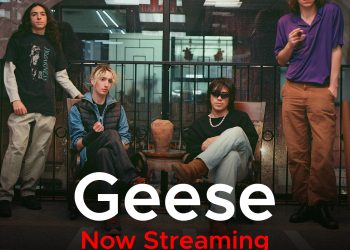In the vast landscape of the internet, language takes on a unique form known as internet slang. This ever-evolving lexicon of abbreviations, acronyms, and expressions serves as a shorthand for online communication, reflecting the dynamic nature of digital culture and the constant evolution of language.
Early Internet Slang
The roots of internet slang can be traced back to the early days of the internet, where limited character counts and slow typing speeds necessitated the use of abbreviated language. Terms like “ASL” (age, sex, location) and “BRB” (be right back) emerged as convenient ways to convey information quickly in chat rooms and online forums.
The Rise of LOL and Other Abbreviations
One of the most iconic examples of early internet slang is “LOL,” an abbreviation for “laugh out loud.” Originally used to indicate amusement or laughter in response to a joke or humorous comment, LOL quickly gained popularity and became a staple of online communication. Alongside LOL, other abbreviations like “ROFL” (rolling on the floor laughing), “BRB” (be right back), and “OMG” (oh my god) became commonly used shorthand expressions in online conversations.
YOLO and the Influence of Social Media
With the advent of social media platforms like Facebook, Twitter, and Instagram, internet slang underwent a transformation, reflecting the changing dynamics of online communication. One notable example is “YOLO,” an acronym for “you only live once.” Popularized by the hip-hop artist Drake, YOLO became synonymous with the philosophy of living life to the fullest and taking risks.
The Evolution of Emoji and Emoticons
In addition to text-based slang, the rise of emoji and emoticons has further enriched the language of the internet. Originally used to convey emotions and facial expressions in text-based communication, emoji have evolved into a universal language of their own, transcending linguistic barriers and enriching online conversations with visual expressions.
Internet Slang as a Form of Identity and Expression
Beyond its functional utility, internet slang serves as a means of identity and expression in online communities. Whether it’s adopting the language of a particular subculture or creating unique slang terms within a close-knit group, internet slang allows individuals to assert their personality and connect with others on a deeper level.
Criticism and Controversies Surrounding Internet Slang
Despite its widespread use, internet slang has not been without its critics. Some argue that the proliferation of abbreviated language and emoji contributes to the degradation of language skills and inhibits meaningful communication. Others raise concerns about the spread of misinformation and harmful content through the use of slang, highlighting the potential dangers of misinterpretation and misunderstanding.
Adaptation of Internet Slang in Mainstream Culture
In recent years, internet slang has permeated mainstream culture, finding its way into everyday language and popular media. From advertising slogans and movie titles to song lyrics and memes, internet slang has become an integral part of contemporary discourse, reflecting the influence of digital culture on society at large.
The Future of Internet Slang
As technology continues to evolve, so too will internet slang. With the advent of artificial intelligence, augmented reality, and other emerging technologies, we can expect to see new forms of slang and expression emerge, reflecting the changing landscape of online communication.
Conclusion
In conclusion, the evolution of internet slang mirrors the ever-changing nature of digital culture and the dynamic interplay between technology, language, and society. From the early days of chat rooms and forums to the ubiquitous presence of social media platforms, internet slang has evolved alongside the internet itself, shaping the way we communicate and express ourselves online.

FAQs After The Conclusion:
- What are some common examples of internet slang?
- How does internet slang differ from traditional language?
- What impact does internet slang have on communication skills?
- Is internet slang appropriate for formal communication?
- How can I stay updated on new internet slang terms?
- What are some potential drawbacks of using internet slang?
- Can internet slang vary between different online communities?
- Are there any cultural differences in the use of internet slang?















